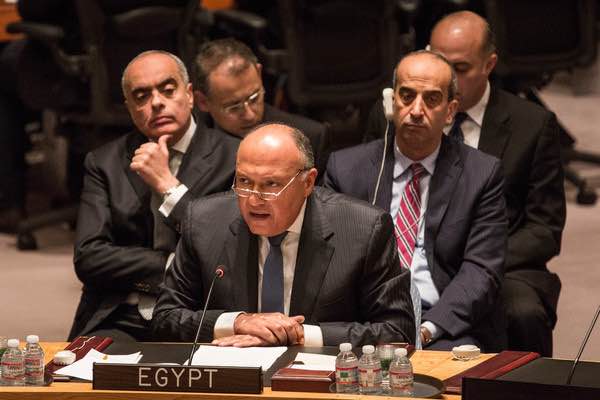CAIRO: Political powers were divided over the Supreme Council of the Armed Forces’ (SCAF) cancelation of Article 5 of the election law, while most expressed reservation towards the new amendments to the political participation law.
Article 5 of the election law did not allow the candidacy of political party members as individual candidates, which was widely denounced by political parties.
On Saturday, the military amended the controversial election law to allow parties to contest a third of the seats in parliament reserved for independents after a boycott threat, state media reported. Voting in a parliamentary election starts on Nov. 28.
SCAF had promised to cancel the article following a meeting with political powers on Oct. 1, as well as study the possibility of implementing a political exclusion law that would ban remnants of the toppled regime from political participation for 10 years.
"Canceling Article 5 is a step forward," said Farid Ismail of the Freedom and Justice Party (FJP). He added however that members of the ousted regime should be banned from political participation to guarantee the integrity of elections.
"The disbanded National Democratic Party (NDP) was always weak in elections. But, they used forgery and thugs to hide that, therefore they should be excluded," he said.
Ismail added that SCAF should combine both parliamentary and Shoura elections together and set a timeline for handing over power.
Nabil Zaki, spokesman for Al-Tagammu Party, agreed that the cancelation of Article 5 is a positive step. "However, we are still committed to our demand of the entire electoral process to be with a relative list," he added.
The leftist party’s spokesman added that despite their opposition to the current electoral system, the party will not boycott the coming parliamentary elections unless a consensus is reached among all parties.
On the other hand, Mohamed Bayoumi, general coordinator of Al-Karama Party, said that canceling Article 5 was an inevitable outcome but is enough to satisfy their demands.
Bayoumi underlined the importance of implementing a political exclusion law to ban members of the disbanded NDP from political participation which SCAF promised to study. "This was a week ago, which raises red flags and questions among politicians," he said.
On the same token, Yousry Hammad, spokesman of the Salafi Al-Nour Party, said that while canceling Article 5 was a collective demand, it is not enough to prevent those who dominated the political sphere for 30 years from participating.
"Trouble is looming from former NDP members in Upper Egypt and SCAF is only watching without taking any action to stop them from tainting the political arena," he stated.
Amendments to the law include banning the use of religious slogans or bribery as well as fining registered voters who failed to cast their ballots without justification, to which political powers objected.
The amendments decreed jail sentences of between one and five years for "whoever uses force or threats to prevent people from voting" and "whoever gives or offers another a personal incentive" to vote for a particular candidate.
Zaki said that SCAF should rather impose a penalty on whoever exceeds the maximum expenditures allowed for campaigning. He added that it should also prohibit the use of places of worship for propaganda ahead of the elections.
"The amendment bans the use of religious slogans during elections just as previous laws did; however, it was never applied," Zaki added. "It should be strictly implemented."
Hammad, on the other hand, rejected the ban, asking "why should there be a law for prohibiting the use of religious slogans while there is no real banning on insulting religions?"
Moreover, Bayoumi said that banning religious slogans should be based on dialogue and an agreement on the concept of a civil state. Otherwise, he said, there cannot be a penalty on a political stance or viewpoint. "Everyone should be free to use whatever slogan they believe in," he said.
Bayoumi also rejected the amendment that imposes a penalty on those who abstain from voting in the elections. "People need to have confidence in the electoral process first in order to believe in the importance of their vote," he said.
While Ismail said that the FJP has not agreed yet on the slogans it will to campaign, urging the media to stop focusing on "peripheral matters," Saad Al-Katatny, secretary general of FJP, had earlier said that the party will stick to its well-known slogan "Islam is the solution," according to media reports. –Additional reporting by agencies



